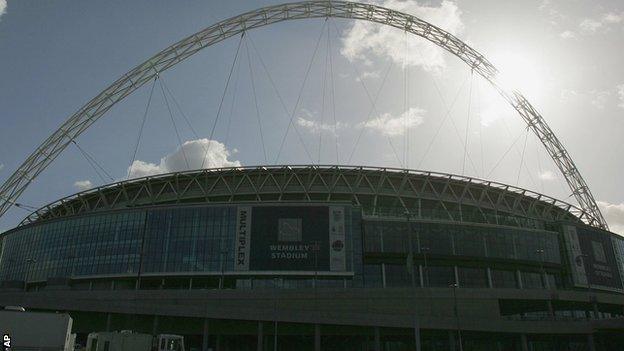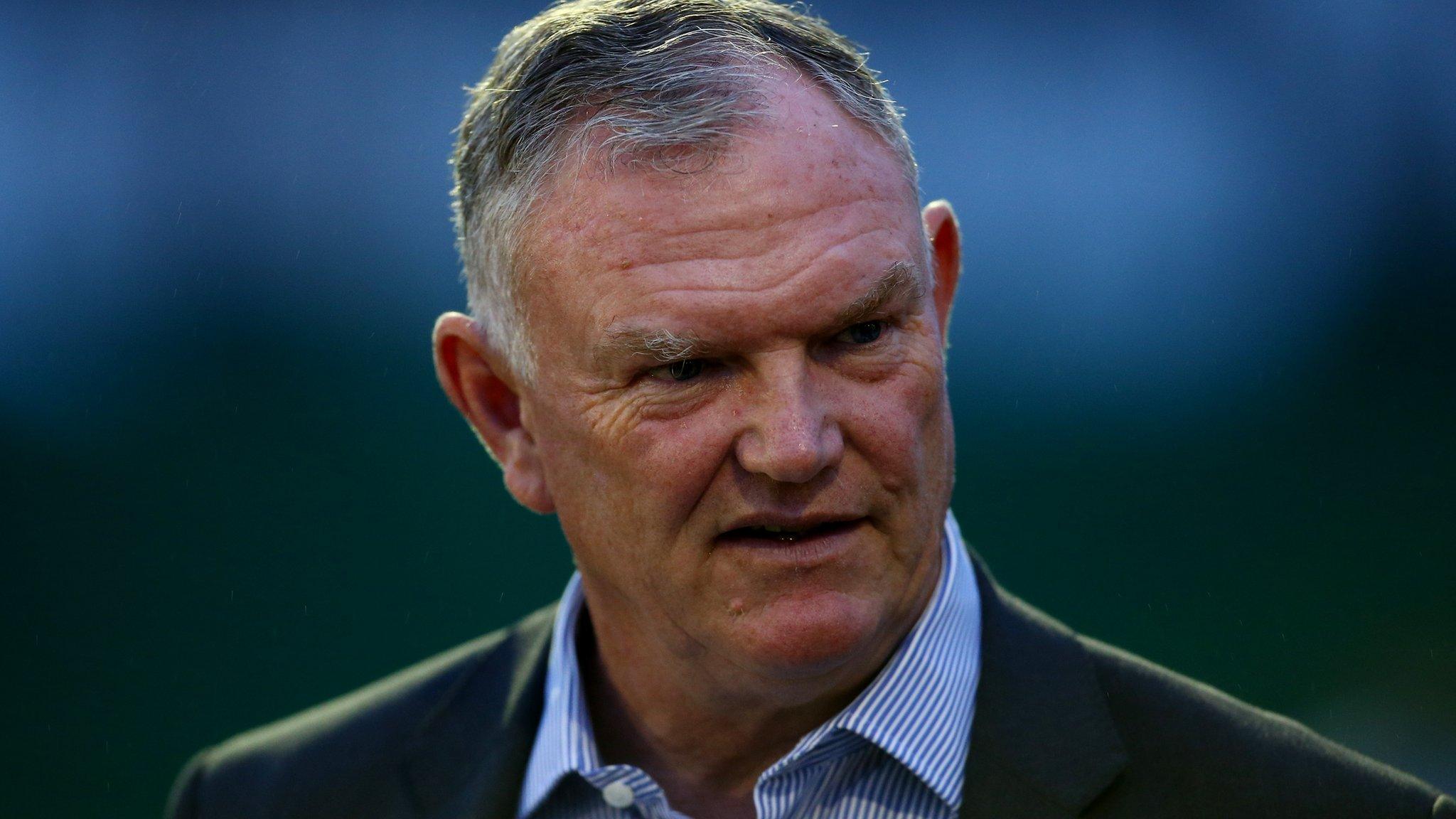FA reform: 'Stupid old men may fight changes,' says Greg Dyke
- Published

More than 90 of the FA Council's 122 members are men aged 60 or over
The "old men" accused of blocking change at the Football Association are "stupid enough" to fight reforms, says former chairman Greg Dyke.
MPs will debate the FA's failure to reform in Parliament on Thursday.
Sports Minister Tracey Crouch has warned the FA could lose £30m-£40m of funding if it does not modernise.
"You shouldn't underestimate the old men of English football. They've seen off all sorts of people over the years," Dyke told BBC Radio 5 live.
"Government are now saying if you don't do these things you'll lose money and we won't support you in the future. Who knows, they are stupid enough to say 'we're going to fight it anyway'."
Damian Collins MP: 'We no longer have any confidence'
The government has repeatedly called for the FA to be more representative of modern society, and those who play the game. It also wants the organisation to change the way it makes decisions.
The FA is effectively run by its own parliament, the FA Council, which has 122 members - just eight are women and only four from ethnic minorities. More than 90 of the 122 members are aged over 60.
In a letter sent to those members, Barry Taylor - Barnsley's life president and one of 19 FA life vice-presidents - wrote: "Let them stop the money.
"I often wonder why the FA does not tell the government to concentrate on running the country and allowing the FA to run football.
"We have the money, we have the power, and they will be back in four years' time to initiate change again.
"Why does the FA continually have to battle with different governments, who do not have to retire, have no age limit, and have no term limits?"
Last year, five former FA executives - including Dyke - called on the government to pass legislation to force through FA reform, saying they had been blocked in their attempts to do so.
"There needs to be radical change," Dyke continued. "You've got to have younger people there, more women, supporters, ethnic minorities - it's got to change.
"The Culture, Media and Sport Select Committee has produced two papers over the years that have both pressed for change and both been completely ignored by this bunch of old guys."
Former FA Chairman Greg Dyke tells Radio 4's Today FA is like travelling back to 1952
He singled out 25 life presidents on the FA Council he said were "not representing anyone", adding: "It's an ongoing oligarchy that looks after itself.
"My understanding is that the professional game has also had enough of these old guys."
But in his letter, Taylor challenged the idea that the Council was unrepresentative.
"It is not exactly static or long-serving, considering that since 2014 a third have retired and therefore a third are new members," he wrote.
"To accuse them of blocking progress is simply not true as the numbers do not add up. They are easy targets."
Current chairman Greg Clarke has said he will quit if his latest plans for reform are not accepted when he presents them to the government in the spring.
And Dyke said: "I think Greg Clarke is a good guy who is trying to make a change, as I did.
"I suspect what Greg is doing is saying to the FA, more than government, that if you can't give me a deal that meets what government is after then I'm not staying around. In which case they'll have lost another chairman. I'm not sure that will worry them - they've lost so many chairmen over the years it doesn't really matter."
Analysis
BBC sports editor Dan Roan
Greg Dyke's latest comments will no doubt anger many FA councillors.
While few deny the governing body's "parliament" lacks diversity and needs to be more representative of the modern game, many reject the narrative that they are always to blame for a lack of progress.
One of the reasons Dyke's attempts at reform failed when he was chairman was because the council feared it would hand even more power and influence to the professional clubs, and especially to the Premier League.
They insist they were right to stand up to Dyke at a time of mounting concern over inequality in the sport.
Some critics also point out it is the FA's board - not its council - where real power lies, and that until more independent directors are added to it, the power of the game's vested interests will continue to prevent decision-making for the whole sport."
Football changes 'not fast enough' says David Davies
- Published8 February 2017
- Published7 February 2017
